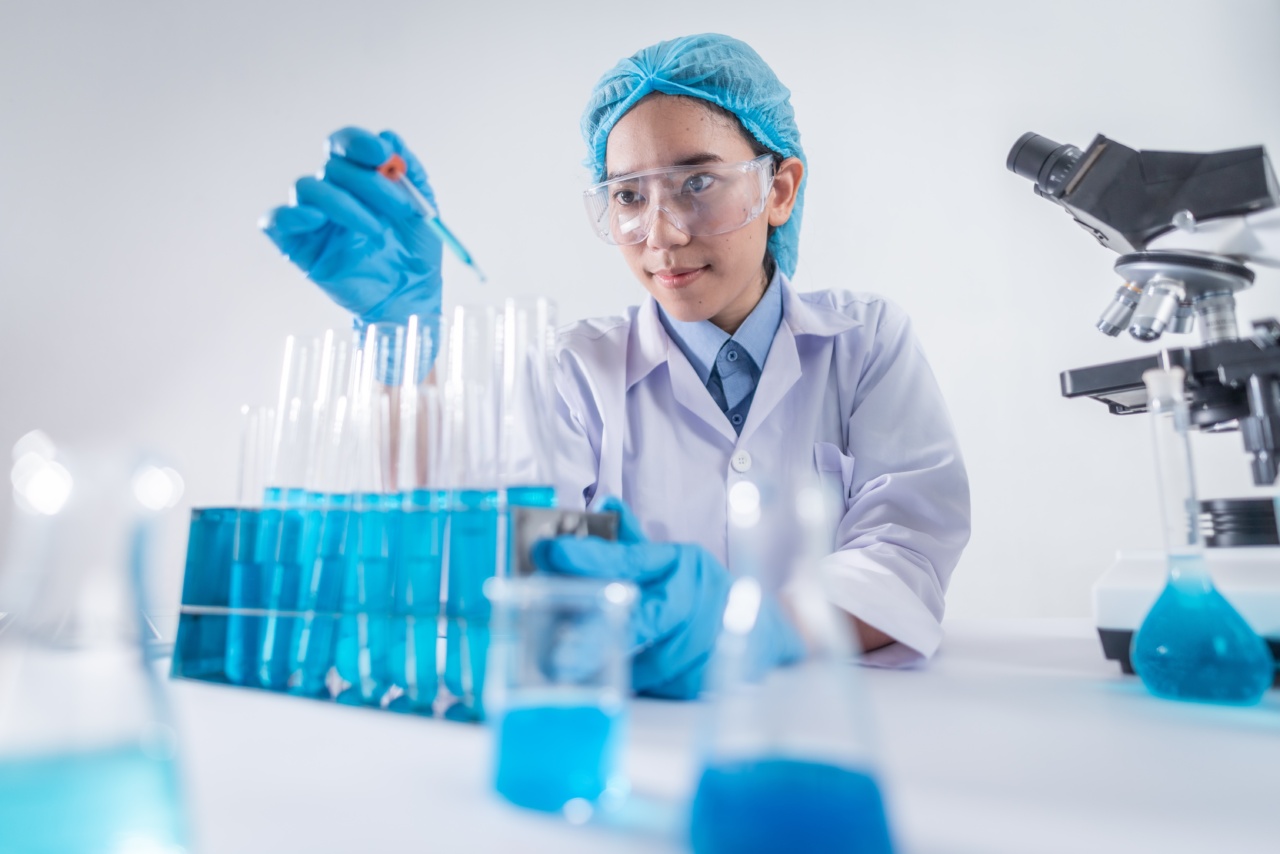Artificial Intelligence (AI) continues to make groundbreaking advancements across various fields, revolutionizing the way we live and work.
One area where AI has shown tremendous potential is in healthcare, where it is increasingly being utilized to develop innovative solutions. One such recent development is the invention of a drug test by an AI system. This breakthrough has the potential to significantly impact the field of medicine and enhance drug discovery processes.
The Role of AI in Healthcare
AI is a branch of computer science that focuses on creating intelligent machines capable of performing tasks that would typically require human intelligence.
In healthcare, AI has immense potential to transform various aspects of the industry, from diagnosing diseases to developing personalized treatment plans. Through the analysis of complex datasets, AI systems can identify patterns and make predictions that can significantly advance medical research and practice.
The Need for Improved Drug Testing
Drug testing plays a crucial role in pharmaceutical research and development, helping to identify potentially effective compounds and assess their safety.
However, traditional drug discovery methods are often time-consuming, expensive, and require extensive human involvement. The high failure rate of drug candidates during clinical trials further highlights the need for more efficient and reliable drug testing processes.
In light of these challenges, researchers and scientists have turned to AI to augment drug discovery efforts.
By leveraging machine learning and algorithms, AI systems can analyze vast amounts of data and identify potential drug candidates, significantly streamlining the drug development process.
The AI-Driven Drug Test
In a groundbreaking development, an AI system has invented a drug test that shows remarkable promise.
Developed by a team of researchers, this innovative AI system works by utilizing deep learning algorithms to analyze large-scale drug and target databases.
The AI system begins by examining the chemical structures of numerous existing drugs and their known target proteins.
Through this analysis, the system learns to identify patterns and relationships between specific structural features and target interactions. This knowledge is then applied to screen and evaluate potential drug compounds that may exhibit similar interactions.
The key advantage of this AI-driven drug test is its ability to rapidly and accurately assess the likelihood of a new compound effectively targeting a certain protein.
By evaluating vast numbers of compounds in a short period, the AI system significantly accelerates the drug discovery process.
The Benefits of AI in Drug Testing
The invention of this AI-driven drug test brings several notable benefits to the field of drug discovery:.
1. Increased Efficiency
Traditional drug testing methods often involve time-consuming laboratory experiments, animal testing, and extensive human resources.
The AI system eliminates many of these labor-intensive steps by rapidly and accurately analyzing potential drug compounds and their target interactions, significantly increasing the efficiency of the drug discovery process.
2. Cost Savings
Developing a new drug is an expensive endeavor, often costing billions of dollars. By accelerating the drug discovery process, the AI-driven drug test reduces the time and financial resources required to identify potential drug candidates.
This can result in cost savings for pharmaceutical companies, making drug development more accessible and affordable.
3. Improved Accuracy
AI systems can process vast amounts of data and identify patterns that may elude human researchers.
By leveraging machine learning algorithms, the AI-driven drug test improves accuracy in predicting potential interactions between drug compounds and target proteins. This can help in identifying drugs that are more likely to be effective, reducing the chances of failure during subsequent stages of clinical trials.
4. Enhanced Drug Safety
Ensuring the safety of drug candidates is a critical aspect of pharmaceutical research. The AI-driven drug test can help identify potential safety risks associated with certain compounds early in the drug development process.
By quickly flagging compounds with undesired interactions, harmful side effects, or other safety concerns, researchers can focus their efforts on compounds with higher safety profiles, ultimately leading to safer and more effective drugs.
5. Accelerated Drug Discovery
Perhaps the most significant benefit of the AI-driven drug test is its impact on accelerating the drug discovery process. AI systems can analyze massive amounts of data and identify potential drug candidates more efficiently than traditional methods.
By rapidly screening compounds and predicting their effectiveness, this AI-driven system has the potential to bring new drugs to market at a much faster pace.
The Future of AI-Driven Drug Testing
The development of an AI system that invented a drug test marks a significant milestone in the field of drug discovery. As AI continues to advance and evolve, its role in healthcare and pharmaceutical research will undoubtedly grow.
The potential for AI to streamline drug testing processes, enhance accuracy, and accelerate drug development is immense.
However, there are still challenges and considerations associated with AI-driven drug testing. Ethical concerns, data privacy, and ensuring regulatory compliance remain critical aspects that need to be addressed.
Additionally, AI systems are limited by the data they are trained on. Ensuring representative and diverse datasets is essential to avoid biases and limitations when employing AI in drug discovery.
Conclusion
The AI-driven drug test has the potential to revolutionize the field of drug discovery, making it more efficient, cost-effective, and accurate.
By leveraging machine learning and algorithms, AI systems can rapidly analyze vast amounts of data, improving the identification of potential drug candidates. This breakthrough holds promise for the development of safer and more effective drugs, ultimately benefiting patients worldwide.





























